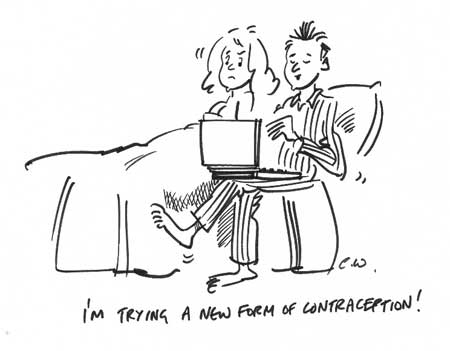|
|
Laptop Wi-Fi radiation may affect male fertility |
Research, first in the world, was carried out by experts from a reproductive medicine center, Nascentis, in Argentina, has found that radiation emitted by an Internet-connected computer resting on the user’s legs may affect male fertility by reducing sperm motility and fragmenting DNA. While agreeing that further research on the matter is required, the researchers advise men to avoid holding laptop computers on the legs, 'especially if they are connected to Internet through Wi-Fi'. The results of the study will be presented at the 66 Congress of the American Society for Reproductive Medicine (ASRM) in October 2010 in Denver, USA. Courtesy of the Digital Journal First Published in August 2010 |













